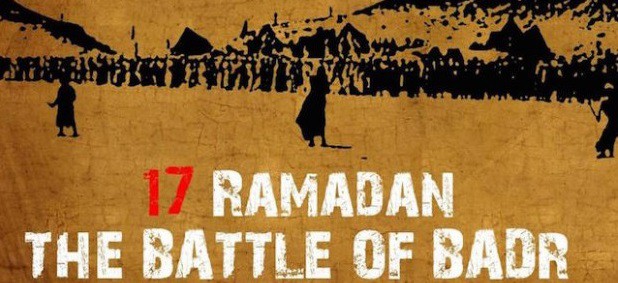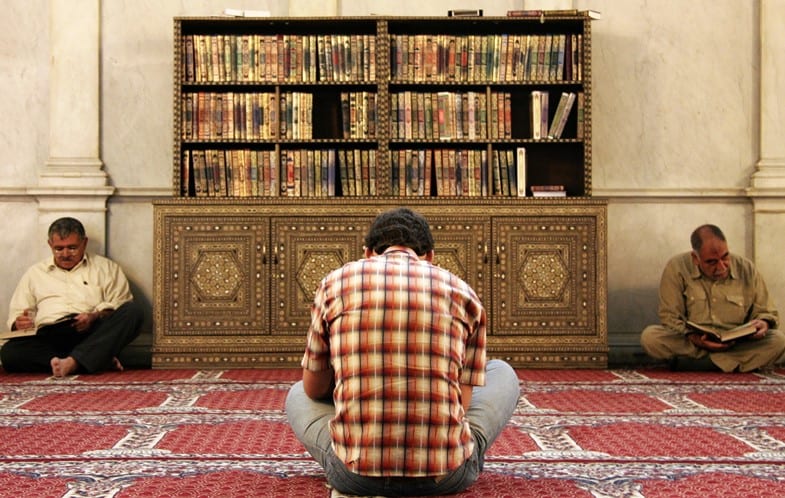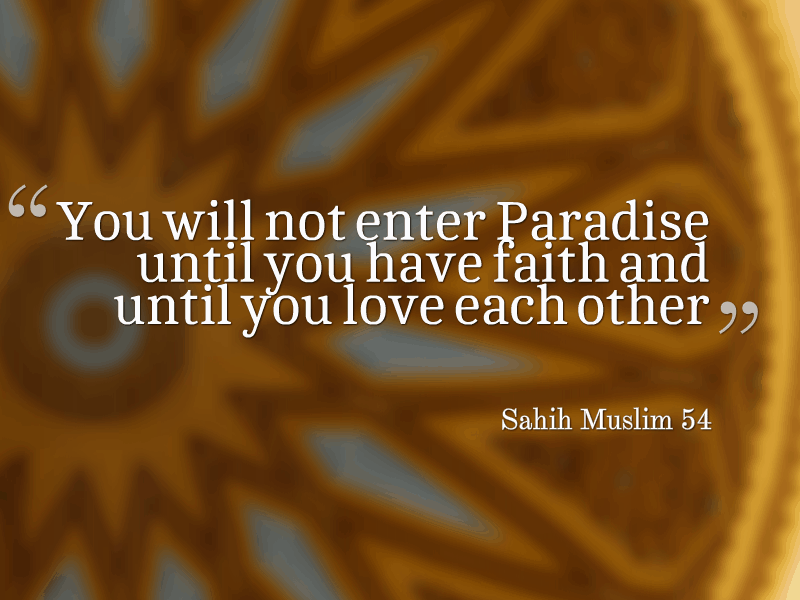The local Muslim community in Sydney, Australia has no doubt recently heard much about the passing away of our beloved brothers Mohammed Nagi and Wassim Elchami, may Allah have mercy on them. They both experienced a debilitating illness (different forms of cancer) and we watched with sadness on social media as the updates got more and more grim.
What was inspiring, however, was their resolve to do good, to dedicate themselves in their final days to repentance and helping others.
The sad passing of these two brothers serves as a wake-up call for us all. Death comes for us all no matter our age – hence the imperative of not treating it as a far-off thing that “happens to other people”. We ask Allah to have mercy on these brothers and grant them Jannah, and to allow their passing to be a lasting reminder to the believers locally and internationally.
We tend to think in detail about certain things, typically things that interest us or which we are directly facing. So football fanatics spend time in following up the latest football news, who is playing who, who has been bought and by which team, etc. People into music would know about the latest chart hits, the top ten, what new bands are on the scene and spend time thinking about this. Movie buffs would ponder about the latest movies, upcoming releases, the latest awards and the like.
Despite expending considerable effort in applying thought to these matters, many people often pay little attention to the clearly vital issue of death. Yet the reality is that death is the most definite thing in life: it is the one constant that cannot be removed, the one inevitability that cannot be delayed.
All of us know of people who have died whether within our families, community, friends or colleagues. The reason some people avoid pondering over it is simple: fear. Fear of the unknown and fear of leaving the certainty that is life. Modern society may in fact be considered to push people into all forms of escapism in order to drown out this daunting inevitability, such that people attempt to escape this reality (consciously or otherwise) by surrounding themselves in music, movies, career, sport, and popular culture.
Yet as Muslims we are aware that even death itself is not the end.
Allah (swt) informed us that there is life after death, that we will be accounted for every action we performed and will be either sent to Jannah (paradise) or Jahannam (Hellfire) according to our deeds.
For a Muslim, reminding oneself of death strengthens our realisation of the afterlife and commitment to Islam.
The Messenger of Allah (ﷺ) said:
The clever one is he who disciplined himself and worked for what is after death, and the feeble one is he who followed his desires, then made (vain) prayers to Allah.
No matter what one’s status, one day they will die and will stand in front of Allah (swt).
Say: The Death from which you flee will truly overtake you: then will you be sent back to the Knower of all things secret and open: and He will tell you (the truth of) the things that you did! [Al-Jumu’ah: 8].
It will be too late to change after one has died, for one cannot go back and change things and live life in a better way – though this is a petition wrong-doers will make to Allah (swt) on the Last Day, as informed in the Qur’an.
“Until, when death comes to one of them, he says: “O my Lord! Send me back (to life), in order that I may do good in that which I have left behind!” – No! It is but a word that he speaks; and behind them is a Partition until the Day they are raised up. Then when the Trumpet is blown, there will be no more kinship among them that day, nor will they ask of one another! Then those whose scales (of good deeds) are heavy, they are the successful. And those whose scales (of good deeds) are light, they are those who lose their ownselves; in Hell will they abide” [Al-Mu’minun: 99-103]
Thinking about death should make us correct our lives, perform our obligations and stay away from haram (prohibitions).
One of the pious Muslims, Al-Rabee’ b. Khaytham, dug a grave in his house, so that if he found hardness within his heart, he would enter it and lay down for as long as Allah wished and read:
O my Lord! Send me back (to life) in order that I may work righteousness in the things I neglected” repeating it, then he would reply to himself saying: “Oh, Rabee’, here, you have been returned, so work.
The Messenger of Allah (ﷺ) said:
Increase the remembrance of that which destroys all desires [Al Tirmidhi].
And he (ﷺ) said:
If animals knew what the sons of Adam knew of death, you would not have found any fat on them to eat [Al Baihaqi in Al Sha’ab].
Thinking about death should not have only a temporary effect on us, so that if someone who is close to us dies, we get ill or have a near death experience, we increase our practice of Islam. Inevitably with the passage of time the effect wears off and one returns to a semblance of their old ways, but the effort should consistently be made to be mindful of the ultimate, final reality we will all face.
Death should thus be at the forefront of our minds and should affect us in a permanent way.
The Messenger of Allah (ﷺ) said to Abdullah b.Umar (ra):
If you awoke in the morning, do not speak to yourself of the evening, and if you reach the evening, do not speak to yourself of the morning. Take from your life for your death, and from your health for your illness, as you, o Abdullah, do not know what your name will be tomorrow [Bukhari].
We shouldn’t delude ourselves that by temporarily repenting to Allah (swt) and then going back to being negligent in our duties that our repentance will count. Rather, it must be sincere, with view to changing our character and practice for the long run.
Of no effect is the repentance of those who continue to do evil deeds, until death faces one of them, and he says: “Now I repent” nor of those who die while they are disbelievers. For them have we prepared a painful torment [An-Nisa: 18].
Pondering about death should make us prepare for it, so that we treat this life as a journey and a test not as a time to be obsessed with enjoying ourselves disregarding the limits Allah (swt) has placed on us. Allah (swt) says:
And the life of this world is only a deceiving enjoyment [al-Hadid: 20]
Ibn ‘Umar (ra) said:
I came to the Prophet (ﷺ), and I was the tenth of ten men, when a man from the Ansar asked: Who is the most clever and the most honourable of people, O Messenger of Allah? He (ﷺ) replied: “Those who remember death the most and work the hardest to prepare for it; they are the clever ones. They have left with the honour of this world and the dignity of the Akhirah” [Ibn Majah]
‘Uthman bin ‘Affan (ra), in the last Khutba he gave in his life, said:
Allah (swt) gave you this world to request the Akhirah, and did not give it to you for you to rely upon, for this world ends and Akhirah is everlasting. So let not that which ends make you disregardful, nor keep you busy from that which lasts. Choose to seek that which lasts over that which ends, for this world will be cut off and our return is to Allah.
Death reminds us of Akhirah, and there is no better reminder.
There are specific actions that the Prophet (ﷺ) encouraged us to undertake to remind ourselves about death.
Abi Tharr (ra) said The Messenger of Allah (ﷺ) said:
Visit the graves, as it will be a reminder of the Akhirah, and wash the dead, as taking care of an empty body is an outstanding admonition, and pray over the Jana’iz (funerals), as it may sadden you, for the sad one is in the shade of Allah [Ibn Abi Al Dunya and Al Haakim].
And Ibn Abi Mulaykah said, The Messenger of Allah (ﷺ) said:
Visit your dead and pray for peace upon them, for there is an admonition for you in it [Ibn Abi Al Dunya – Good chain of narrators].
And Al-Dhaahik said:
A man once said: Oh, Messenger of Allah, who is the most Zaahid (abstinent) of people? He (ﷺ) said: “He who does not forget the grave and abandoned the luxuries of life, seeking that which lasts above that which ends, not counting yesterday as one of his days, and counted himself amongst the people of the graves”. It is easy to leave the thought of death at the back of your mind and believe that you have a long life left. The angel of death leaves no one, whether young or old when their time has come.
In fact the remembrance is not crying and wailing and blaming one’s self when one is on the brink of death, or attending a funeral or visiting graves alone. Rather, remembrance of death is when a believer imagines that he will meet his Lord at any moment, and his actions will be cut off, as will his ability for repentance. So he will be aware of himself, careful to obey Allah (swt), and thus wary of his Lord every second of his life.
Say: ‘My life, my death and acts of worship are all for the Lord of the mankind (Rabil alamin) [Al-An’am: 162]
![]()















